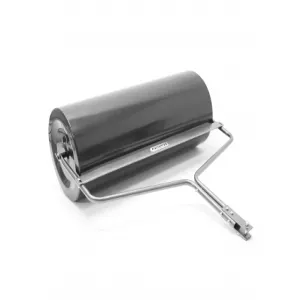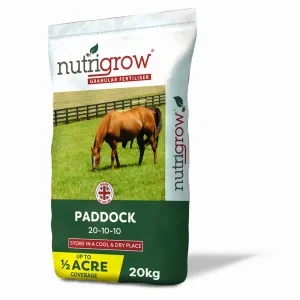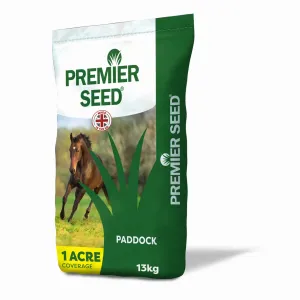With the weather getting warmer and spring just around the corner, start planning your paddock maintenance year with this paddock calendar. It will give you a helping hand in knowing what to do in each season with an added blog each month to get that extra depth of information.
Winter
- Poaching - In poached areas such as gateways and along fence lines, laying woodchips or gravel can help minimise damage.
- Paddock Rotation - Where spare pasture is available rotate the paddocks to avoid winter damage by keeping the grass to 2cm or designate a paddock just for winter.
- Poo Picking - Keep poo picking as poo left on the ground can restrict grass from growing and it reduces the number of parasites and encourages horses and ponies to eat the whole field and not selectively graze.
- Soil Sample - Test your soil for pH and nutrient levels. The optimum pH for growing grass is 6.5. Testing early will allow for forward planning for the year.
Spring
- Harrowing - Removes any dead grass and moss aerating the grass as well as dispersing mole hills and poo heaps.
- Fertilise - The results taken from the soil sample in winter will establish whether fertiliser is required on your paddock. The fertiliser will replenish nutrients and encourage grass growth.
- Rolling - Rolling will flatten out divots and ruts as well as make your paddock look better. Don’t roll if the ground is too dry.
- Re-seeding - If there are any bar patches using a suitable mix, re-seed those areas.
- Control Weeds - Act against thistles, docks, and nettles by spraying during early growth. If the infestation is heavy, expert advice should be sought.
Don’t Forget - Only take machinery onto the dry ground to prevent damage and compaction on your paddock.
Summer
- Control Weeds - Continued weed control should take place including the removal of poisonous plants.
- Topping - Top any long, stalky grass and rough areas. This can help stimulate grass growth and keeping the grass at a length of 5cm will withstand the actions of horses’ hooves. Do not top ragwort or foxglove these become more palatable for horses but retain their toxicity.
- Harrowing/Rolling - If conditions were wet in spring, you can repair poaching before the winter period.
- Poo Picking - Keep poo picking as poo left on the ground can restrict grass from growing, risk scorching the grass and will attract flies.
Autumn
- Fertiliser – In autumn there is an autumn flush of grass. Giving your paddock a top dressing of fertiliser will encourage grass to grow thicker and denser going into winter. Be aware this is a risk for ponies who suffer with laminitis.
- Re-seeding - If there are any bar patches using a suitable mix, re-seed those areas.
- Ragwort – Ragwort can still be growing so having a routine procedure every autumn will keep it under control.






